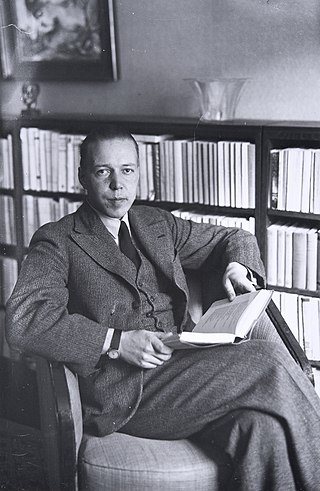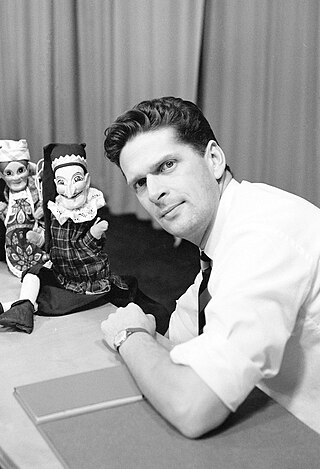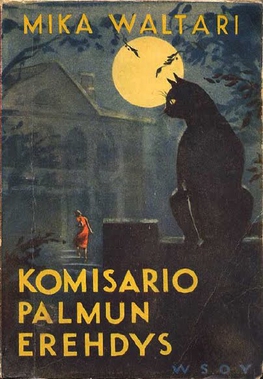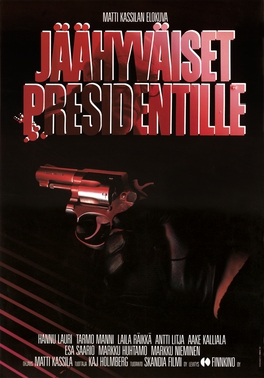
Frans Eemil Sillanpää was a Finnish writer. In 1939, he became the first Finnish writer to be awarded the Nobel Prize for Literature "for his deep understanding of his country's peasantry and the exquisite art with which he has portrayed their way of life and their relationship with Nature".

Mika Toimi Waltari was a Finnish writer, best known for his best-selling novel The Egyptian. He was extremely productive. Besides his novels he also wrote poetry, short stories, crime novels, plays, essays, travel stories, film scripts, and rhymed texts for comic strips by Asmo Alho.

The Egyptian is a historical novel by Mika Waltari. It was first published in Finnish in 1945, and in an abridged English translation by Naomi Walford in 1949, from Swedish rather than Finnish. Regarded as "one of the greatest books in Finnish literary history", it is, so far, the only Finnish novel to be adapted into a Hollywood film, which happened in 1954.

Renny Harlin is a Finnish film director, producer, and screenwriter who has worked in Hollywood, Europe, and China. His best-known films include A Nightmare on Elm Street 4: The Dream Master, The Adventures of Ford Fairlane, Die Hard 2, Cliffhanger, The Long Kiss Goodnight, and Deep Blue Sea.

The Finnish cinema has a long history, with the first public screenings starting almost as early as modern motion picture technology was invented. It took over a decade before the first Finnish film was produced and screened in 1907. After these first steps of Finnish cinema, the progress was very slow. After 1907 there were two periods when no Finnish films were produced. This was partly caused by the political situation, as Finland held a status as an autonomous part of the Russian Empire and was thus influenced by the worldwide political situation.

Inspector Frans J. Palmu, depicted as "a gruff detective of the Helsinki Police Department", is one of the most popular characters created by Finnish writer Mika Waltari.

Gas, Inspector Palmu! is a 1961 Finnish crime movie directed by Matti Kassila. It is a sequel to Inspector Palmu's Mistake and is followed by The Stars Will Tell, Inspector Palmu. The main cast of actors is the same as that of the first though some actors such as Elina Salo, Pentti Siimes and Aino Mantsas play different characters,

The Radio Burglary is a 1951 Finnish crime comedy directed by Matti Kassila and starring Hannes Häyrinen. The idea for the movie came from an actual radio program done by sensationalist reporter Usko Santavuori, in which he committed a fake burglary of which local police forces had not been made aware, with the exception of the commander.

Matti Kassila was a Finnish film director who achieved fame as one of the most prominent Finnish filmmakers in the 1950s and 1960s. He is most famous for the series of four Inspector Palmu movies, based on the character created by Mika Waltari. During his long career, he won seven Jussi Awards, including a concrete Jussi for lifetime achievement, and received numerous other commendations. His 1959 film Punainen viiva was entered into the 1st Moscow International Film Festival. He was also one of the screenwriters for the 1968 film Here, Beneath the North Star, directed by Edvin Laine.

Komisario Palmun erehdys is a 1960 Finnish crime comedy film directed by Matti Kassila for Suomen Filmiteollisuus. It is set in 1930s Helsinki and centers on Inspector Palmu's investigation of the murder of rich and decadent Bruno Rygseck. It is based on Mika Waltari's 1940 novel of the same name, and was the first film adaptation of his Inspector Palmu novels.
Martti Erik Hjalmar Löfberg was a successful Finnish pulp fiction author, especially in the 1930s and the 1940s. Though writing his adventure stories, science fiction and mystery novels under a long list of pseudonyms, the one he was best known for was Marton Taiga.

Toivo Joel Rinne was a prolific Finnish actor of stage and screen. Among his most memorable film parts was the title role in the Inspector Palmu movie series, which started in 1960's Komisario Palmun erehdys, and continued in three sequels. Another well-known role in Joel Rinne is in the 1970 film Päämaja, directed by Matti Kassila, in which Rinne interprets in the role of Marshal Mannerheim.
The Stars Will Tell, Inspector Palmu is a 1962 Finnish comedy-crime film directed by Matti Kassila. It is the third film in the Inspector Palmu series and the second one produced by Fennada-Filmi. The novel was written by Waltari through the explicit request by director Kassila. It is also the last film in the series to be shot in black and white. The fourth film was made without Waltari's involvement.

Matti Helge Ranin was a Finnish actor.

Esko Nevalainen was a Finnish film cinematographer. His career started in 1945 when he began to work as an assistant for a production company called Filmitaito.

Fennada-Filmi was a Finnish film production company which was in operation from 1950 to 1982. It was one of the largest companies in its field in Finland from 1950s to 1970s. Mauno Mäkelä was the head of the company during its entire run.

Inspector Palmu's Mistake is a 1940 Finnish detective novel by Mika Waltari. It is the second book of the Inspector Palmu series after the first book, Who Murdered Mrs Skrof?. The protagonist of the book, like his predecessor, is Inspector Frans J. Palmu, who sets out to investigate a rich victim who appears to be died in an accident, but which is revealed to be murder.

Domus Litonii is a three-story Empire style residential, commercial and office building with a lower bazaar wing located at Aleksanterinkatu 50 in central Helsinki, Finland.

Farewell, Mr. President is a 1987 Finnish action thriller film directed by Matti Kassila and starring Hannu Lauri. It tells the story of a disgruntled waiter planning to assassinate the Finnish President. The film is based on a 1979 thriller novel of the same name by Pentti Kirstilä. Unlike contemporary Finnish films, the film is a thrilling film strongly influenced by post-classic Hollywood films.

















